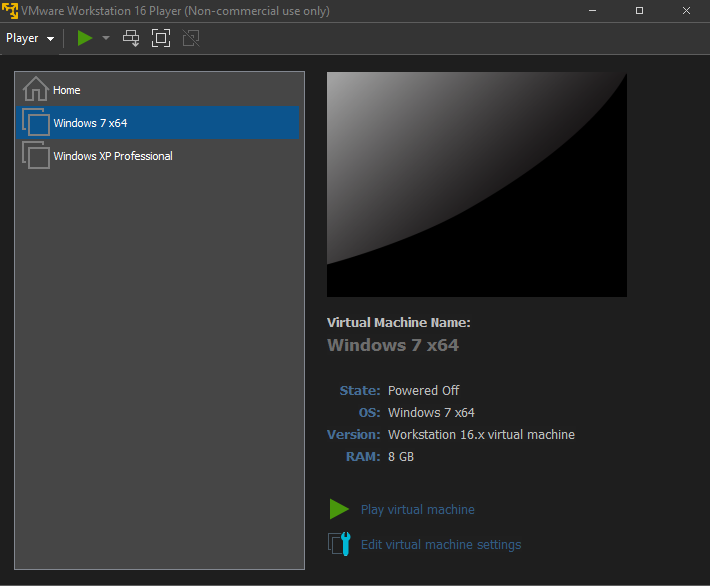
- #VMWARE HORIZON HACKERS SERVERS ARE EXPLOIT HOW TO#
- #VMWARE HORIZON HACKERS SERVERS ARE EXPLOIT INSTALL#
- #VMWARE HORIZON HACKERS SERVERS ARE EXPLOIT WINDOWS#
By exploiting the flaw, attackers can execute commands on the underlying operating system. The vulnerability, tracked as CVE-2020-4006, is a command injection flaw in the web administration interface of VMware Workspace One Access, VMware Workspace One Access Connector, VMware Identity Manager (vIDM), VMware Identity Manager Connector, VMware Cloud Foundation and vRealize Suite Lifecycle Manager.
#VMWARE HORIZON HACKERS SERVERS ARE EXPLOIT HOW TO#
"Rather than trying to stop this, the focus must be on how to mitigate the impact of a breach when it happens.The US National Security Agency (NSA) is warning organizations to patch or take mitigation steps to close a vulnerability in several VMware products that Russian state-sponsored hackers are exploiting to hijack authentication tokens and access sensitive data on other systems. "As businesses assess how best to prepare for a cyberattack, they must accept that eventually, attackers will get in," he says.

If tech leaders want to be sure of properly protecting their systems, they must prepare for the inevitable attack, as well as patching, Lewis adds. "This attack path is significantly more exposed, particularly as adversaries turn to automation to scale their attacks." "The latter typically contain more sensitive information and have greater privileges or permissions within the network," he says. The popularity of this exploit signifies a change from hackers targeting client-side applications (individual devices such as laptops, desktops and mobiles), to server-side applications, suggests Darktrace's Lewis. In other cases, desirable targets may be selected after broad targeting."ĭata, insights and analysis delivered to you View all newsletters By The Tech Monitor team Sign up to our newsletters Sign up here In some cases, they will work from a wish list of targets that existed long before this vulnerability was public knowledge. "We believe these actors will work quickly to create footholds in desirable networks for follow-on activity which may last for some time. "We have seen Chinese and Iranian state actors leveraging this vulnerability, and we anticipate other state actors are doing so as well, or preparing to," says John Hultquist, VP of intelligence analysis at Mandiant. Hafnium, a threat actor thought to originate from China, has been observed using the vulnerability to attack virtualisation infrastructure to extend their typical targeting. This activity ranges from experimentation during development, integration of the vulnerability to in-the-wild payload deployment, and exploitation against targets to achieve the actor’s objectives."Įxamples include Iranian group Phosphorous, which has been deploying ransomware, acquiring and making modifications of the Log4J exploit. The company's security team said Log4J was being exploited by "multiple tracked nation-state activity groups originating from China, Iran, North Korea, and Turkey.

Nation-state threat actors use Log4JĮvidence of nation-state backed threat actors from countries including China and Iran has been uncovered by threat analysts at Microsoft.
#VMWARE HORIZON HACKERS SERVERS ARE EXPLOIT WINDOWS#
Khonsari, a middleweight ransomware gang, has also been found exploiting Windows servers with Log4J, reports security company BitDefender, which notes that the gang's malware is small enough to avoid detection by many antivirus programmes. TellYouThePass has Windows and Linux versions, and many of the attempts we’ve seen have targeted cloud-based servers on AWS and Google Cloud."

"In the cases where we’ve detected these attempts, they’ve been stopped.
#VMWARE HORIZON HACKERS SERVERS ARE EXPLOIT INSTALL#
"We’ve specifically seen threat actors using Log4J to attempt to install an older version of TellYouThePass," explains Sean Gallagher, threat researcher at security company Sophos. TellYouThePass, has not been spotted in the wild since July 2020, but is now back on the scene and has been one of the most active ransomware threats taking advantage of Log4J. Log4j is also responsible for reviving a ransomware strain that has been dormant for the past two years.


 0 kommentar(er)
0 kommentar(er)
